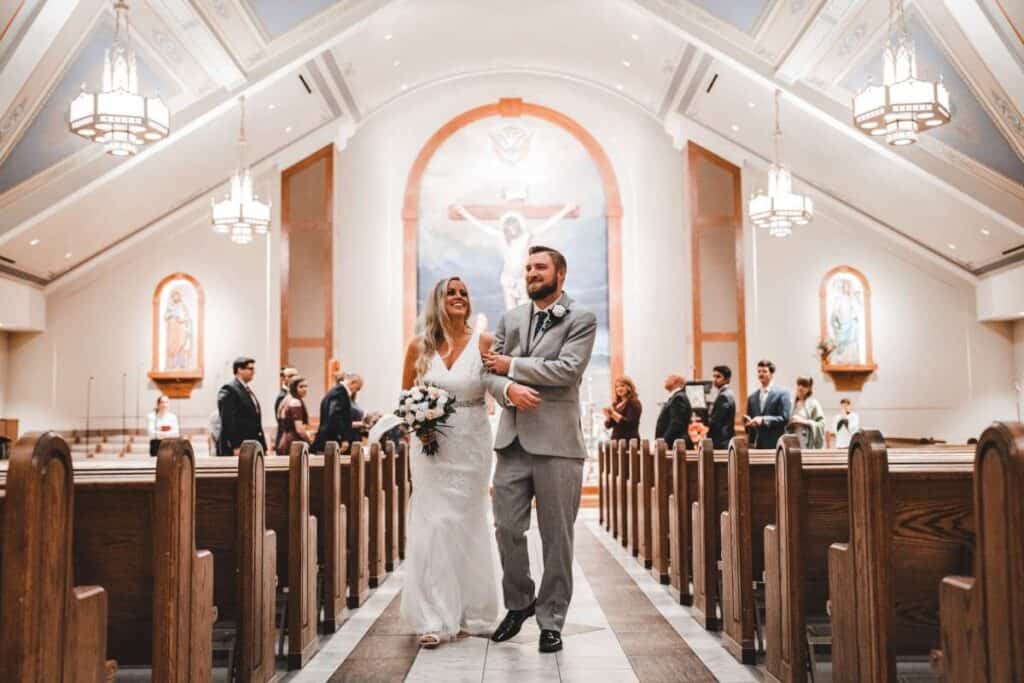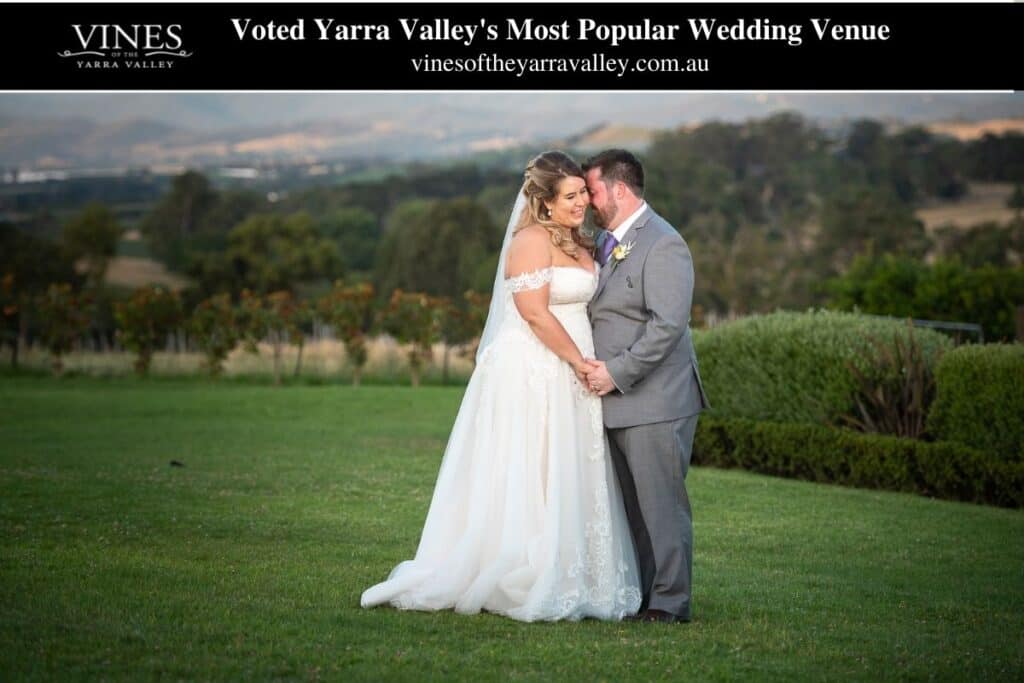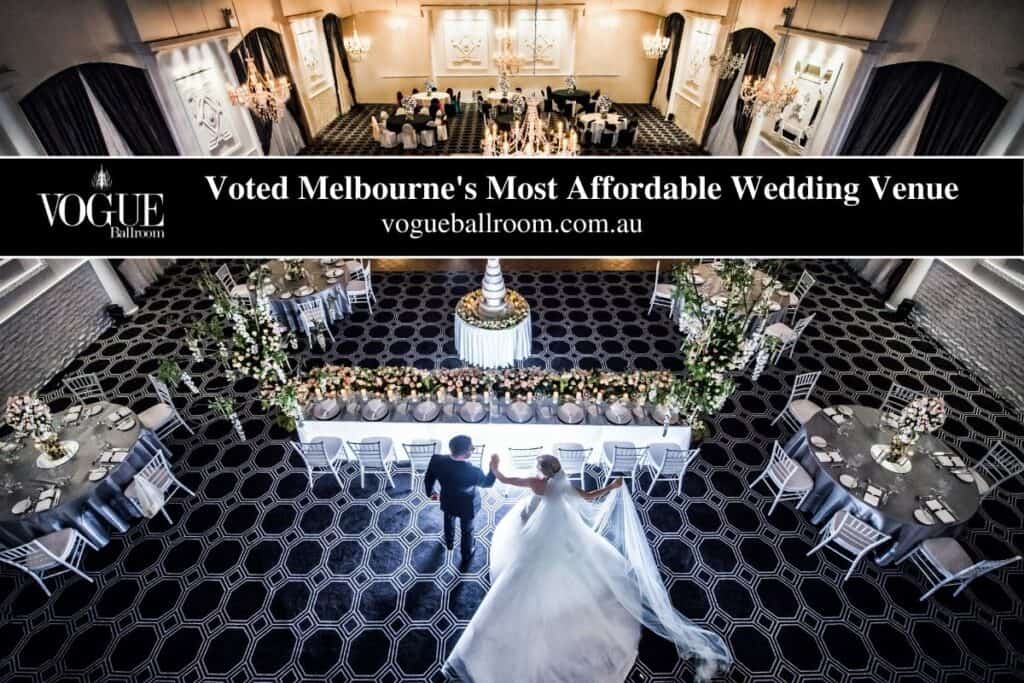Whether you've just gotten engaged & absolutely can not wait to say "I do," have been engaged for years and are helplessly behind on making plans, or are somewhere in between, you can pull off a wedding in 3 months or less. Need help planning your wedding? Check out our list of Wedding Event Planners here.
Even under ideal conditions, wedding preparations can be a source of stress, so being well-organized and able to make quick decisions are necessities when planning a wedding in a hurry. Many of you having read this are probably trying to adapt to the ever-changing requirements of Covid-19. A wedding, however, can be planned and executed in a relatively brief time frame. You need to be adaptable and able to make snap judgements.
Table of Contents
3 Months To Go: The Important Stuff First
Let's start by setting the record straight. Think about how flexible you'll need to be if you intend for this to function in 3 months. It's likely that the most important tasks you'll want to complete during the first month upon getting engaged might be the ones that require the most preparation. In the first month, you'll have to get all of these things done.
Pick a preferred date.
Knowing for sure if you wish to get married is a big help. If you want to book the location and the necessary services, you may have to be versatile with the date. Availability of said venue, as well as the time of year you plan to tie the knot, will play major roles in all of this.
Get your engagement pictures taken.
Taking professional photographs of your engagement is highly recommended if at all possible. The pictures will serve as a wonderful keepsake, and you'll probably want to feature them on your wedding website and invitations. A friend with a smartphone and a trip to the park would be another option for low-cost photography. You should take pictures because this is an exciting time in your life that you'll want to remember in the future.
Decide on your wedding budget.
Since weddings tend to be so expensive, it's easy for costs to get out of hand quickly. Before moving forward with rest of the planning, make sure you and your future spouse have time to sit down and discuss and agree on a wedding budget. Keep in mind that last-minute purchases often cost more than planned, so it pays to investigate all of your options ahead of time.
Get your team together.
Determine who will be helping you organise the wedding. Having a wedding planner won't absolve you from seeking the advice of your loved ones on the big decisions that need to be made. Women in your family, including your mum, future mom-in-law, maid of honour, bridesmaids, sisters, etc. Find your bridesmaids' trusted group of friends and ask for their help.
Settle on your guest list
Take this step before looking for a location for the event. It will help you determine how much room you'll need. You should have no trouble finding a suitable location that can accommodate all of your guests if your wedding is scheduled for the offseason. You may want to compromise on a relatively small visitor list in order to have more flexibility with the available media outlets.
Hire a wedding planner or buy a wedding planner book
Spend money on a wedding planner's guide if you can't afford a full-fledged wedding planner. If you do this, you will be able to keep your plans on track and finish everything you set out to do. Only hire a wedding planner if you are confident in their skills, experience, and reputation, and if you have ample time to devote to planning the event.
The wedding party is made up of those you ask to be a part of your big day, so it's important that they're people you care about. In such a limited time frame, having a wedding party that is both supportive and adaptable is essential. Recruit dependable individuals to assist you in meeting your targets. Your maid of honour should have impeccable organisational skills, and your bridesmaids should be willing and able to step in and help out whenever necessary.
Find and book your venue.
When planning an event, it's much more convenient and less stressful if the location you choose provides everything you need. Yes, the dishes, napkins, and food will all be provided for you. Reserving an all-inclusive place for your reception will save you time and effort in the long run. During the peak wedding season, it can be difficult to secure a venue, so it's wise to keep a sight out for less obvious options that may still be suitable.
Decide on your wedding theme and style.
Once you've chosen a venue, you can start thinking about a wedding or aesthetic that will work well with the area you're working with. It's up to you to decide on an outing that suits the current season or that is tailored specifically to your preferences and interests.
Pick your wedding colours.
Now that you've settled on a location and theme, you can begin to envision how those elements might look in the venue and determine which colours would best complement the setting. Pick the colours that you love and that you think will look good in the space you're decorating. In order to stymie your next moves, you must make this choice and stick to it. The colours of the bridesmaid dresses, the cake, the flowers, and the decorations all depend on this.
Find and hire all your vendors.
The venue may have everything you need, but you may still need to hire additional help that isn't included in the platform. Finding the right people on such tight deadline can be challenging, but family, friends, and members of the wedding party are always reliable resources.
Shop for wedding attire
It would be incredibly convenient to be able to shop for the wedding gown, bridesmaid dresses, groomswear, and groomsmen's attire all at the same time. Even if this isn't a time of great decisiveness for you, you'll need to pick a wedding and adhere to it if you desire to get things moving along. If you want to save funds on your wedding dress, you should check out local bridal boutiques' sample sales but also clearance sections.
The bridesmaids' dresses, as well as the mother of the bride's and flower girl's, can be purchased from the comfort of their own homes via the internet. The online rental process at Men's Wearhouse is streamlined, making it simple to discover and rent a suit and tuxedo for men.
There's still a lot to do, but then at least the hard stuff is over with. Stay diligent because the big day is getting closer and it will be fantastic, and the major stages should be easy and quick.
2 Months To Go: The Fun Stuff
With the big stuff out of the way, you're free to focus on the fun stuff, like creating your wedding website, registering for gifts, planning your honeymoon, sending out invitations, etc. These tasks must be completed by the end of the 2nd month of your engagement at the latest if you want to tie the knot.
Guests can choose from a variety of formal dinners and casual buffets. Your reception's menu should be a reflection of who you are and the occasion you're celebrating. A breakfast as well as brunch banquet is a great option if you're trying to save money. If you're trying to cut costs, you can do the "breakfast for dinner" thing, but many people don't care for it and it's up to you whether you want to try it.
Set up your wedding registry.
Now, you don't have to go to all of your favourite stores one by one to create a wedding registry. Setting up a registry is just as simple as creating an account on the website, and it takes no more than only few hours to do so.
Start communicating with your guests.
Sending out save-the-date cards this near to the wedding date is a waste of time because by the moment guests accept them, it'll be time to send out invitations. However, by making a wedding website, you can let everyone know about the upcoming marriage and your initial plans. Guests who plan to travel should book their air travel and lodgings in advance. Include information about the blocked-off hotels and other nearby accommodations.
Schedule a trial for your hair and makeup
Your favourite hairdresser is probably already established in your life. If you plan ahead, you could get your makeup and hair done by a professional for your wedding. Bring your closest girlfriends and make getting your hair done into an event.
Have your cake tasting
If you haven't been putting in the work, you should start doing so now. You & your future husband should visit several local bakeries and try out different cake flavours before making a final decision. Wedding cake bakers who specialise in making homemade cakes should not be overlooked. They can be visually comparable, taste great, and expense much less. We've compiled this extensive guide to assist you in selecting the most delicious cake flavour.
Purchase wedding rings
Expect a waiting period of 4 to 6 weeks if you are having something particularly elaborate and unique created for your wedding bands. Given enough time to select and order them to guarantee they will arrive in time for the big day. Using this guide, I pray you are able to locate the ideal wedding bands.
Make sure your wedding party has ordered their attire.
There's already enough on your plate without worrying about someone else being late because they decided to take their lovely time finding their dress or suit. You won't have to stress over this if you're footing the bill for their attire, but they probably will be if they're paying their own way. Motivate your team to get their order in as quickly as possible.
Have your bridal shower
Guests will feel more comfortable making purchases from your registries if they are in place several weeks before the bridal shower. Simply showing up and being grateful is all that is required; the maid of honour as well as bridesmaids will take care of the rest.
Start planning your honeymoon.
Honeymoons can be extravagant and last a full week, or they can be short and inexpensive. A little alone time to celebrate your marriage with your new spouse is well deserved. It's time to get things in order and reserve lodging, transportation, etc.
Make a plan for your rehearsal dinner.
Able to host a rehearsal dinner is a great way to show your loved ones and wedding party how much they mean to you. Your rehearsal dinner can be as intimate as just the two of you or as grand as you like. Furthermore, you need to shop for the wedding party so that they can exchange gifts at the rehearsal dinner. The party food is important, but you might want to let someone else take care of it so you can focus on other things.
Get your marriage license.
Before applying for a marriage licence, you should find out what is necessary under state and local law. You should also verify the due date, any waiting period required, etc. Costs and requirements are not uniform across the country.
Send out your wedding invitations.
Whether you've been engaged for three weeks or twelve, you still have about six weeks to get your wedding invitations out. Guests need ample notice to get ready, double-check their schedules, book transportation, etc. RSVP cards or even a link to a wedding website in which guests could indeed respond digitally should be included in the invitations. With this option, we can save on paper and postage by handling it electronically.
Meet with your photographer and determine which shots you want to be taken.
While it's true that your photographer will likely have some excellent recommendations, you may also have some ideas of your own. In order to select where and when to take pictures, it's best to get everyone together. Because of this, taking pics on the special day will be a breeze. You should definitely ask to see samples of her work and show her your professional work. Looking for the Top Wedding Planner in Melbourne? Look no further and check out our ultimate list of Wedding Planners here.
Make your wedding day plan/timeline.
Make sure your wedding planner as well as guests all have copies of the finalised timeline so that everyone knows what to expect.
No more time can be wasted in putting off preparations. Now that you've double-checked that everything is moving along as expected, you can move forwards.
1 Month To Go: The Last Minute Stuff
The majority of the work ought to be done by now, and we're getting there. Check to see if things are moving forwards as expected. These responsibilities should be wrapped up by the end of the third month of your contract.
Write your wedding vows.
It's time to put pen to paper and write the perfect vows now that the bulk of the stressful planning is over. Do some digging on the internet and come up with a list of qualities in your potential life partner that you find endearing. Create a written message that conveys your affection and gratitude. You and your partner can write the vows together, or you can write them separately. If you choose to write them separately, you should have your officiant read them ahead of time to make sure they complement each other and are the same length. They can also contribute to the creation of your vows.
Get a final headcount and make a seating chart.
The wedding venue and caterer need to know the final guest count about two weeks before the big day. Getting your RSVPs in by now would be greatly appreciated. If not, contact those who haven't responded with an RSVP and ask them nicely to do so. If you don't hear from them, it's safe to assume they aren't coming. If you want to ensure that guests are seated in specific areas at your reception, you can start making a seating chart right away (since you should know everyone coming).
Confirm details and plan with your vendors
It is recommended that you contact your suppliers a few weeks ahead of time to ensure that everything is on schedule. Make sure you and your partner have a shared vision for the wedding's timeline and organisation. When can we expect the cake to arrive? Once your photographer has arrived, when can we expect to begin taking pictures? When do the flowers typically appear? Exactly how late are you going to get in trouble if you show up? Etc.
Go in for your final wedding dress fitting.
Depending on how they handle stress, many brides either put on or lose weight in the months and weeks leading up to the wedding. Arrange for a final dress fitting a week or two before the big day so that you have time to make any last-minute adjustments.
Party on at your bachelorette party.
There should be a pre-wedding party for you and your bridesmaids. Wedding planning assistance is not limited to the maids of honour. This is a wonderful opportunity to include the girlfriends you couldn't ask to be in your wedding party.
It's finally here: the big day! You're probably going to go crazy from all the stress of the wedding's last-minute decisions and preparations, but it'll be worth it when you see your future husband's face as you walk down the aisle.
How to Plan a Wedding in 3 Months: Tips & Tricks
Truth be told, making a wedding schedule is challenging. It's possible, but the wedding might not be as elaborate as the bride had hoped if she only had 90 days to plan everything. With careful preparation, however, a wedding can be held in as little as 90 days!
Think Outside the (Vendor) Box
Even if it's too late to secure the services of the top wedding professionals in your area, you can still host a stunning celebration.
I discuss a variety of unconventional methods for organising a wedding:
- Discover if the restaurant of your choice has a buffet and if it offers the foods you enjoy.
- If you're having a small ceremony and reception at home, you can save money by having guests bring a dish to share.
- Instead of providing free drinks all night long, consider purchasing alcohol in bulk from a winery or brewery and hiring a bartending student to serve.
- Instead of spending a lot of money on a live band or DJ for the wedding, you can just play your own music on an mp3 player.
- Contact local flower shops and enquire if they offer simple seasonal flower arrangements. If they don't need to order anything out of the ordinary, they may be able to assist you.
- The next time you need a special occasion cake but don't want to spend the money on a custom order, just grab a generic cake from the grocery store and top it with a unique cake topper you found on Etsy. You could also just get a sheet cake from the grocery store and call it good, because let's be honest: we all have a soft spot for that frosting.
Prioritise Your Guests
If paper invitations are still a must three months out, that can be arranged. It's important to send out invitations quickly so that guests have time to decide whether or not they can make it and can confirm their attendance via email. Expect to have to follow up with some invitees to get a response, as your venue and vendors will need a final headcount a few weeks before the wedding.
You don't have to sacrifice style for convenience when sending electronic invitations via email; there are many lovely templates to choose from.
Find an Officiant Early On
The ceremony can be performed by anyone who is legally ordained to do so, such as a minister, justice of the peace, judge, or even a friend. Your wedding ceremony will need a celebrant, so now is the time to start making some inquiries.
Be Flexible With Your Wedding Attire
If you're looking for a way to stand out from the crowd on your wedding day, consider purchasing a white bridesmaid dress. We guarantee you'll see substantial savings by the deal's end. Indulge your inner shopper and peruse the racks at your local mall, on the internet, or in a vintage store; you might find something you love. Anyone in need of a suit can simply purchase one from the rack; additionally, thrift shops are a person's best friend.
Don't bother with formal attire; it's your wedding, not anyone else's.
Don't Be Afraid to Get Crafty.
Gather your pals for a night of cocktails and crafting to make the table decorations and place cards. Your DIY wedding projects have been pinned for months, so now is the time to pull up your favourite tutorials and get to work! Check out our ultimate list of Wedding Planners in Melbourne to help you organise a stress-free wedding. If you're short on time, pick a few that will give you the most bang for your buck, and don't worry about the rest.
Conclusion
The stress of wedding planning is real even when everything goes smoothly. You need to be well-organized and have the ability to make quick decisions if you need to plan a wedding in a short amount of time. After getting engaged, you may find that the most important things to do are also the ones that require the most planning. Even if you hire a wedding planner, you still need to take the time to consult with friends and family. With such a short amount of time, you'll need a wedding party that can support you and roll with the punches.
Hiring dependable people to help you out is the next best thing to having a full-fledged wedding planner if you don't have the money for one. Once you've decided on a location, you can start planning a wedding theme or overall look that complements the space. To get the best deal on your wedding dress without sacrificing quality, shop around at bridal boutiques in your area and don't forget to peruse the sample sales and clearance racks. Now that the major hurdles have been cleared, you can turn your attention to the minor details. You have until the end of the second month of your contract to get these done.
It's best to have your wedding registry set up well in advance of the bridal shower. Inspire your group to submit their order as quickly as possible. You and your new spouse deserve some private time to rejoice in your marriage. Get the honeymoon planning started right away! Discuss your desired shots in detail with your photographer.
Now that you've finished the bulk of your wedding preparations, it's time to put pen to paper and write the perfect vows. Verify that progress is being made in the expected direction, and give everyone involved a copy of the finalised timetable. It's a good idea to check in with suppliers a few weeks ahead of time to make sure everything is on track. You and your bridesmaids deserve a celebration before the big day. Schedule your final dress fitting a week or two before the big day so you have time to make any necessary adjustments.
As an alternative to pouring free drinks all night long, you could buy in bulk from a winery or brewery and have a bartending student serve guests. Fast invitation delivery gives guests plenty of time to consider whether or not they can attend. You should start looking for a celebrant for your wedding right now. DIY wedding projects are the perfect time to let your creative side shine.
Content Summary
- Decide on your wedding budget.
- Settle on your guest listTake this step before looking for a location for the event.
- Find and book your venue.
- Pick your wedding colours.
- Shop for wedding attireIt would be incredibly convenient to be able to shop for the wedding gown, bridesmaid dresses, groomswear, and groomsmen's attire all at the same time.
- Decide on your reception menu.
- Set up your wedding registry.
- Start planning your honeymoon.
- Make a plan for your rehearsal dinner.
- Get your marriage license.
- Make your wedding day plan/timeline.
- Write your wedding vows.
- The wedding venue and caterer need to know the final guest count about two weeks before the big day.
- Go in for your final wedding dress fitting.
- I discuss a variety of unconventional methods for organising a wedding:Discover if the restaurant of your choice has a buffet and if it offers the foods you enjoy.
- Instead of spending a lot of money on a live band or DJ for the wedding, you can just play your own music on an mp3 player.
- It's important to send out invitations quickly so that guests have time to decide whether or not they can make it and can confirm their attendance via email.
- Your wedding ceremony will need a celebrant, so now is the time to start making some inquiries.
FAQs About Wedding Planning
- Making Plans Before You Set a Budget.
- Setting a Date Before You Pick Your Venue.
- Not Reading Venue Contracts.
- Assuming 10% of Guests Will RSVP "No"
- Not Making a Rain Plan.
- Buying an Outfit Before You Pick the Venue.
- Blowing Your Budget on Just the Dress.
- Trying to Do Everything Yourself.
- Set a Wedding Budget. It's critical that setting your budget be the first step in planning your wedding.
- Download a Wedding-Planning App.
- Get Inspired.
- Start Your Guest List.
- Pick Your Wedding Party.
- Narrow Down the Dates.
- Choose a Venue.
- Start Your Wedding Registry.
- Wedding Ceremony - 2%
- Wedding Rings - 2%
- Venue Hire - 15%
- Catering (Food and Drink) - 25%
- Photography/ Videography - 12%
- Outfits and Beauty - 12%
- Wedding Cake - 2%
- Wedding Planner - 3% - 15% Depending On The Level Of Service You Choose.





